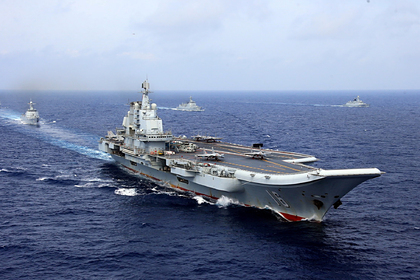The AUKUS trilateral defense alliance formed by Australia, the United Kingdom and the United States may lead to a "semi-permanent marriage" in the Indo-Pacific region between "brilliant Russia" and "astute China," Lyle Goldstein, director of Asia relations at the Defense Priorities analytical center, writes in the American edition of Defense News.
The author notes that Canberra is unlikely to receive nuclear submarines from Washington or London, provided for by the AUKUS agreement, in the next 20 years. The expert is sure that such submarines are not suitable for operations in shallow and land-surrounded waters of the East Asian coast, where China can place minefields.
Goldstein predicts that Russia will buy aircraft carriers from China, and Beijing will buy nuclear submarines from Moscow. "It is quite possible that in the future the Russian Navy will be armed with Chinese-made aircraft carriers, while Chinese forces will surf the oceans on the most modern Russian-made nuclear submarines," the expert writes.
Concluding the publication, the author admits that "the semi-permanent marriage between the Russian genius of military design thought and the Chinese industrial production acumen regarding large projects may be the most disturbing legacy of the deal with AUKUS."
In September, Brian Clark, a researcher at the Hudson Institute, said Breaking Defense that within the framework of AUKUS, nuclear submarines for the Royal Australian Navy (Navy) can be built by reducing the order for Virginia-type submarines of the US Navy (Navy).
Ivan Potapov



